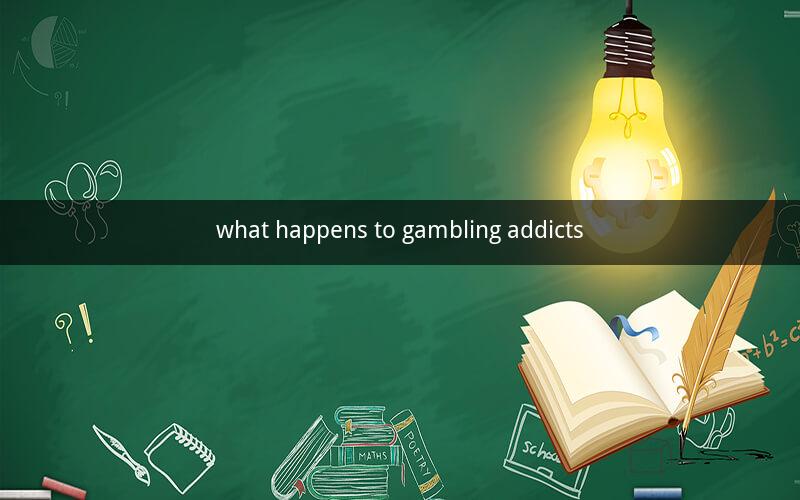
Table of Contents
1. Introduction to Gambling Addiction
2. The Psychological and Emotional Impact
3. The Social and Financial Consequences
4. Treatment and Recovery Options
5. Preventing Gambling Addiction
6. Conclusion
1. Introduction to Gambling Addiction
Gambling addiction, often referred to as compulsive gambling or problem gambling, is a serious condition that affects individuals of all ages, backgrounds, and socioeconomic statuses. It is characterized by an inability to control or stop gambling despite negative consequences. This article explores the various aspects of gambling addiction, including its psychological and emotional impact, social and financial consequences, treatment options, and prevention strategies.
2. The Psychological and Emotional Impact
Gambling addiction can have profound psychological and emotional effects on individuals. Many addicts experience intense feelings of anxiety, depression, and guilt. The constant need to gamble can lead to feelings of obsession and compulsion, making it difficult for individuals to maintain healthy relationships and perform well in their personal and professional lives. Additionally, the consequences of gambling addiction can lead to feelings of shame and embarrassment, further exacerbating the psychological distress.
3. The Social and Financial Consequences
The social and financial consequences of gambling addiction can be devastating. Individuals may lose their jobs, friendships, and family relationships due to their gambling behavior. Financially, gambling addiction can lead to massive debt, bankruptcy, and even homelessness. The emotional toll of these consequences can be overwhelming, making it even more difficult for individuals to seek help.
4. Treatment and Recovery Options
Treatment for gambling addiction typically involves a combination of therapy, support groups, and lifestyle changes. Cognitive-behavioral therapy (CBT) is often used to help individuals identify and change the thoughts and behaviors that contribute to their gambling addiction. Support groups, such as Gamblers Anonymous, provide a sense of community and support for individuals struggling with gambling addiction. Additionally, medication may be prescribed to help manage symptoms of anxiety and depression.
5. Preventing Gambling Addiction
Preventing gambling addiction involves a combination of education, awareness, and responsible gambling practices. Individuals should be aware of the risks associated with gambling and understand the signs of problem gambling. Responsible gambling practices, such as setting limits on time and money spent gambling, can help individuals maintain control over their gambling behavior.
6. Conclusion
Gambling addiction is a serious condition that can have devastating consequences for individuals and their families. Understanding the psychological, emotional, social, and financial impact of gambling addiction is crucial for individuals seeking help and for those who want to prevent addiction. By seeking treatment, joining support groups, and practicing responsible gambling, individuals can overcome their addiction and lead healthier, more fulfilling lives.
Questions and Answers
1. What are the signs of gambling addiction?
- Signs of gambling addiction include preoccupation with gambling, loss of control over gambling behavior, lying about gambling activities, and experiencing negative consequences as a result of gambling.
2. How can gambling addiction affect a person's relationships?
- Gambling addiction can strain relationships by causing financial stress, emotional turmoil, and a lack of trust between partners and family members.
3. What is the most effective treatment for gambling addiction?
- The most effective treatment for gambling addiction often involves a combination of therapy, support groups, and lifestyle changes. Cognitive-behavioral therapy (CBT) is particularly effective in helping individuals change their thoughts and behaviors related to gambling.
4. Can medication help treat gambling addiction?
- Yes, medication can be prescribed to help manage symptoms of anxiety and depression associated with gambling addiction. However, medication is not a standalone treatment and should be used in conjunction with therapy and support groups.
5. How can I help a loved one who is struggling with gambling addiction?
- You can help a loved one by offering support, encouraging them to seek treatment, and being patient and understanding. It's important to avoid enabling their behavior and to seek support for yourself as well.
6. Are there any support groups for individuals struggling with gambling addiction?
- Yes, there are many support groups available for individuals struggling with gambling addiction, such as Gamblers Anonymous and Gam-Anon.
7. How can I prevent gambling addiction?
- To prevent gambling addiction, you can set limits on time and money spent gambling, avoid risky gambling environments, and educate yourself about the risks associated with gambling.
8. Can gambling addiction be cured?
- While there is no cure for gambling addiction, it can be effectively managed and treated. With the right support and treatment, individuals can overcome their addiction and lead healthier lives.
9. How can I tell if my gambling is a problem?
- If you find yourself preoccupied with gambling, lying about your gambling activities, or experiencing negative consequences as a result of gambling, it may be a sign that you have a problem.
10. What should I do if I think I have a gambling addiction?
- If you suspect you have a gambling addiction, it's important to seek help from a mental health professional or support group. Don't wait until the consequences become overwhelming.